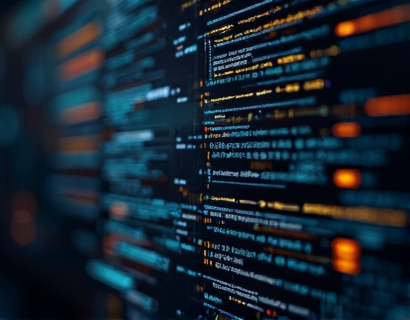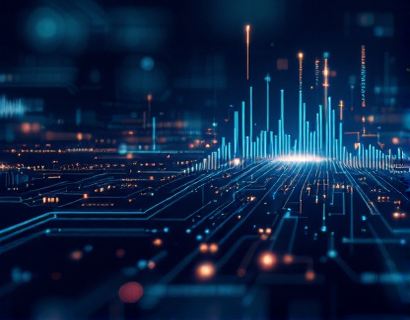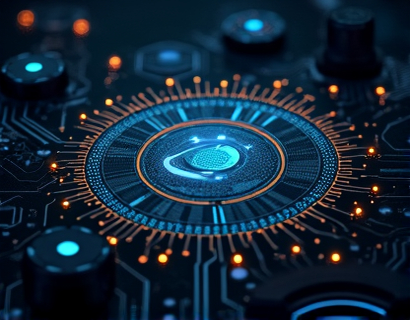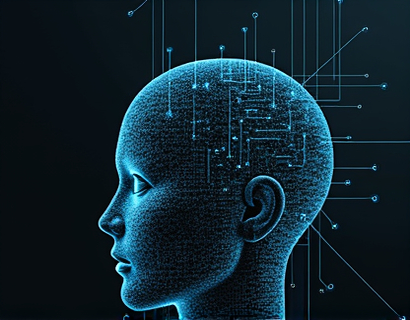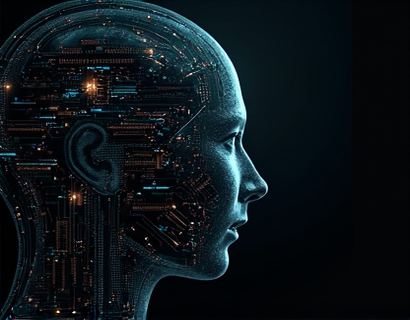AI-Driven Poker Education: Unlocking Mastery for All Players
In the world of poker, the path to mastery is long and fraught with challenges. Traditional learning methods often fall short, leaving many players to rely on trial and error or word-of-mouth advice. However, the integration of artificial intelligence in poker education is revolutionizing the way players learn and improve their skills. This article delves into the transformative power of AI-driven learning tools, designed to elevate poker players from novices to experts through intelligent and personalized educational resources.
The Need for Advanced Learning Tools in Poker
Poker is a game of strategy, psychology, and probability. While natural talent plays a role, the majority of success comes from knowledge and skill. The complexity of the game, with its numerous variations and strategies, makes it difficult for players to learn effectively on their own. Traditional methods such as reading books, watching videos, and playing at the table have limitations. AI-driven learning platforms address these limitations by providing a structured, data-driven approach to poker education.
Comprehensive Educational Resources
AI-driven poker education platforms offer a wide range of resources tailored to players of all skill levels. For beginners, these platforms provide foundational knowledge, starting with the rules of poker, hand rankings, and basic strategies. As players progress, the content evolves to cover more advanced topics such as pot odds, expected value, and psychological tactics. The AI algorithms adapt to the player's learning pace and style, ensuring that each user receives a customized educational experience.
Beginner Basics
For newcomers, understanding the basics is crucial. AI-driven platforms start with interactive tutorials that explain the rules and objectives of poker. These tutorials use clear, concise language and visual aids to ensure comprehension. Players learn about different poker variants, such as Texas Hold'em, Omaha, and Seven-Card Stud, along with the specific rules and strategies associated with each.
One of the key features of these platforms is the use of simulations and virtual tables. Beginners can practice hands and scenarios in a risk-free environment, receiving instant feedback on their decisions. This hands-on approach helps reinforce learning and builds confidence.
Intermediate Strategies
As players gain confidence, they move on to intermediate strategies. AI-driven platforms offer in-depth analysis of common poker situations, such as pre-flop decision-making, flop strategy, and post-flop management. Interactive modules break down complex concepts into manageable parts, using real-game examples and statistical data to illustrate key points.
One innovative feature is the use of AI-powered chatbots. These chatbots engage players in conversational learning, answering questions and providing explanations on demand. Players can ask about specific strategies, review past mistakes, or seek advice on how to improve their game. The chatbots use natural language processing to understand and respond to a wide range of queries, making the learning process more dynamic and engaging.
Advanced Tactics and Expert Strategies
For seasoned players looking to refine their skills, AI-driven platforms offer advanced tactics and expert strategies. These resources delve into micro-gaming concepts, such as bluffing techniques, table dynamics, and opponent profiling. Advanced players can access detailed analyses of professional poker games, dissecting the decisions made by top players and understanding the reasoning behind their moves.
AI algorithms can also generate customized training plans based on a player's strengths and weaknesses. By analyzing a player's historical data, the platform identifies areas for improvement and creates a tailored learning path. This personalized approach ensures that players focus on the aspects of the game that need the most attention, maximizing their progress.
Intelligent Learning Tools
The true power of AI-driven poker education lies in its intelligent learning tools. These tools use machine learning to adapt to each player's unique learning style and progress. Here are some of the key features:
- Adaptive Learning Paths: The platform adjusts the difficulty and content based on the player's performance, ensuring a balanced learning experience.
- Real-Time Feedback: Players receive immediate feedback on their decisions, helping them learn from mistakes and reinforce good habits.
- Data-Driven Insights: Advanced analytics provide players with insights into their playing style, highlighting areas for improvement and tracking progress over time.
- Virtual Opponents: AI-generated opponents simulate real-game scenarios, allowing players to test their strategies against a variety of playing styles.
Enhancing Decision-Making Skills
One of the most significant benefits of AI-driven poker education is its ability to enhance decision-making skills. Poker is a game where every decision counts, and the ability to make optimal choices under pressure is crucial. AI tools help players develop a systematic approach to decision-making by providing structured frameworks and decision trees.
For example, AI-driven platforms can guide players through the process of evaluating pot odds and expected value. By breaking down these concepts into step-by-step calculations, players learn to make informed decisions based on mathematical probabilities. This data-driven approach reduces reliance on intuition and increases the likelihood of winning hands.
Building Psychological Resilience
Poker is not just a game of skill but also of mental toughness. The ability to stay calm, manage emotions, and maintain focus is essential for long-term success. AI-driven learning tools address this aspect by incorporating psychological training modules. These modules use cognitive behavioral techniques and mindfulness exercises to help players develop a strong mental game.
Interactive scenarios simulate high-pressure situations, allowing players to practice coping strategies and learn how to stay composed under stress. AI chatbots can also provide motivational support and tips on maintaining a positive mindset, further enhancing the player's psychological resilience.
Community and Support
Learning poker is not a solitary journey, and AI-driven platforms recognize the importance of community and support. These platforms often include forums, chat rooms, and social features that connect players with similar goals and experiences. Players can share strategies, discuss games, and seek advice from more experienced members.
AI can facilitate these interactions by recommending relevant discussions, pairing players for practice sessions, and even moderating forums to ensure a positive and helpful environment. This community aspect not only enhances the learning experience but also fosters a sense of belonging and motivation.
Continuous Improvement and Innovation
The field of AI in poker education is rapidly evolving, with continuous improvements and innovations on the horizon. Machine learning algorithms become more sophisticated, allowing for even more personalized and effective learning experiences. Future developments may include advanced virtual reality (VR) simulations, providing immersive training environments that mimic real-game conditions.
Additionally, the integration of big data and predictive analytics can further enhance the platform's capabilities. By analyzing vast amounts of game data, AI can identify emerging trends and patterns, offering players insights that were previously unattainable. This continuous evolution ensures that players always have access to the most cutting-edge tools and resources.
Conclusion
AI-driven poker education represents a significant leap forward in the way players learn and improve their skills. By combining comprehensive educational resources, intelligent learning tools, and a supportive community, these platforms empower players of all levels to achieve their full potential. Whether you are just starting out or looking to refine your strategies, AI-driven poker education offers a path to mastery that is both effective and enjoyable. Embrace the future of poker learning and unlock your true potential at the table.









